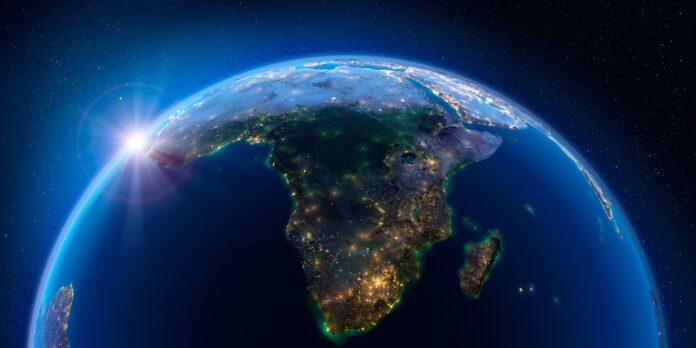Like other regional operators, Orange sees Fixed Wireless Access as a big growth opportunity in Africa
Orange has announced that its Botswana affiliate is the first on the African continent to offer 5G services. Orange Botswana launched 5G on November 11, 2022 with coverage in grater Gaborone and Francistown, offering 30% of the population with coverage. Orange said other Botswanan cities will follow in early 2023.
Orange Botswana has debuted new 5G Fixed Wireless Access (FWA) and mobile data bundles aimed at residential customers and small and medium enterprises, it said in a statement. FWA starts at 15 megabits per second (Mbps) for prepaid and 20 Mbps for postpaid, it said, at rates starting at BWP 699 (US$53.80) per month, equivalent to about 10% of the average Botswanan’s monthly salary, according to statistics.
“For us the main use case is fixed wireless access,” said Nene Maiga, CEO of Orange Botswana.
The company hopes to attract vertical markets like healthcare, education and security services with the new offerings. To that end, Orange Botswana has partnered with local healthcare services provider MRI Botswana to create a “Connected Ambulance” project that provides telemedicine services. The project “will allow Doctors to guide Paramedics through life saving procedures on their way to hospitals,” said Orange Botswana in a statement.
Orange operates in 17 countries throughout the Middle East and Africa. The company claims that 1 in every 10 Africans is an Orange customer. In 2020, Orange Middle East and Africa (MEA) generated €6.4 billion (US$6.6 billion) in revenue and reached more than 135 million customers. In 2020, Orange and its subsidiaries announced the commercial launch of Djoliba, a fiber backbone consisting of more than 10,000 km of terrestrial fiber coupled with 10,000 km of undersea cables. The first of its kind in the area, the fiber backbone connected the capitals of Burkina Faso, Cote d’Ivoire, Ghana, Guinea, Liberia, Mali, Nigeria and Senegal.
But until the Botswana launch, Orange’s telecom reach on the continent was purely through 4G services, specifically. Orange Botswana marks the public debut of Orange’s 5G service deployment in Africa, though the company has taken steps to test the 5G waters there and elsewhere. In September, Orange announced the opening of a 5G lab in the Côte d’Ivoire city of Abidjan. The lab is hosting 5G demonstrations for regional business leaders and others to test 5G applications and services.
Orange said it’s proceeding with 5G deployment in Botswana to give enterprises and mobile users an early start on adoption, despite the absence of a broad regulatory framework for 5G licensing in the region.
“In other countries, regulation boards still have not officially initiated the 5G licenses attribution process although many of them, such as in Cote d’Ivoire showed a clear will to make the 5G spectrum available in 2023. Meanwhile, Orange is collaborating with several regulatory bodies to help build a 5G deployment roadmap while testing the technology and developing use cases that fit with the local populations’ need,” said the company.
That momentum was underscored by Jerôme Henrique, CEO of Orange Middle East and Africa. “The launch of 5G technology in Botswana will allow us to scale-up this technology and gain experience for other Orange countries across Africa,” he said.
Orange has regional competition, of course. South African wireless and wireline service provider Telkom announced the launch of its 5G service for South Africa late last month. Again, FWA took center stage at that rollout, where Huawei, banned from new telecom infrastructure buildouts in North America over national security concerns, was also featured. And in August, Nokia and Safaricom noted a successful pilot test of 4G and 5G FWA in Kenya’s Western Region. Nokia claimed the pilot was the first time 4G and 5G network slicing had been successfully tested anywhere in Africa.

